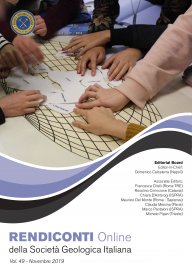
MALIA: a project to raise awareness on Marine Litter in the Atlantic and Mediterranean
Teresita Gravina (1), Alessandra Iero (1), Juan Diego Lopez Giraldo (2) Alberto Ruiz (3), Iolanda Borges (4), Costantina Cossu (5), Christos Maratheftis (6), Markella Papanicolaou (7), C. Marisa R. Almeida (8) & Laura Guimarães (8)
(1) AIRIcerca -Via San Giovanni Bosco 1, 25125 Brescia Italia.
(2) Asociación Ambiente Europeo (AAE) -Calle Vereda de la Barca, 10 Llano de Brujas Spain.
(3) IES Europa - Calle Miguel Ángel Blanco, Águilas, Spain.
(4) Escola Secundária De Paredes - R. António Araújo, 4580 Paredes, Portugal.
(5) Enrico Fermi - VIA XX SETTEMBRE 229 Alghero, Italy.
(6) Lyceum A Ethnarhis Makarios III (LEM) 7, Leoforos Griva Digeni Paphos Cyprus.
(7) AKTI Project and Research Centre, 1 Kalliopis street, apt. 401, 2102 Aglantzia, Nicosia, Cyprus.
(8) CIIMAR, Novo Edifício do Terminal de Cruzeiros do Porto de Leixões, Avenida General Norton de Matos, S/N, 4450-208 Matosinhos, Portugal.
Corresponding author e-mail: teresitagravina@gmail.com
Abstract
Keywords
Get Full Text